On January 19, a seminar on “Understanding and Application of Amendment (XII) to the Criminal Law”, jointly organized by the G20 Anti-Corruption Fleeing and Recovery Research Center and the China Association for Integrity Legal System (CAALS), was successfully held in Beijing. Mr. Jiang Wei, Vice President of China Law Society and former Vice President of the Supreme People's Court, Mr. Hu Yunteng, President of Case Law Research Society of China Law Society and former full-time member of the Trial Committee of the Supreme People's Court, Mr. Yuan Qiguo, Vice President and Secretary General of China Association of Integrity Legal System Research and former Director of the Criminal Prosecution Department of the Supreme People's Prosecutor's Office, Mr. Wang Xiaodong, Vice President of China Society of Criminal Procedure Law Research and former President of the Second Division of the Criminal Justice Section of the Supreme People's Court attended the seminar. Attending the meeting. Ms. Liang Yali, Senior Partner of King&Capital Law Firm and Director of Kyoto Criminal Defense Research Center, was invited to participate in the conference and make a special speech.
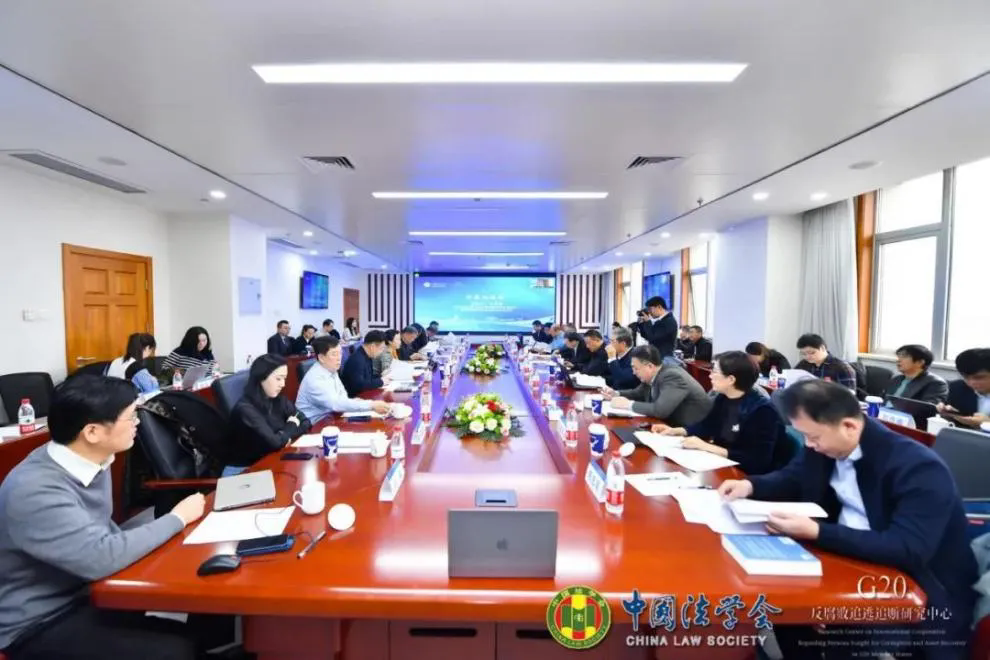
Scene of the Seminar
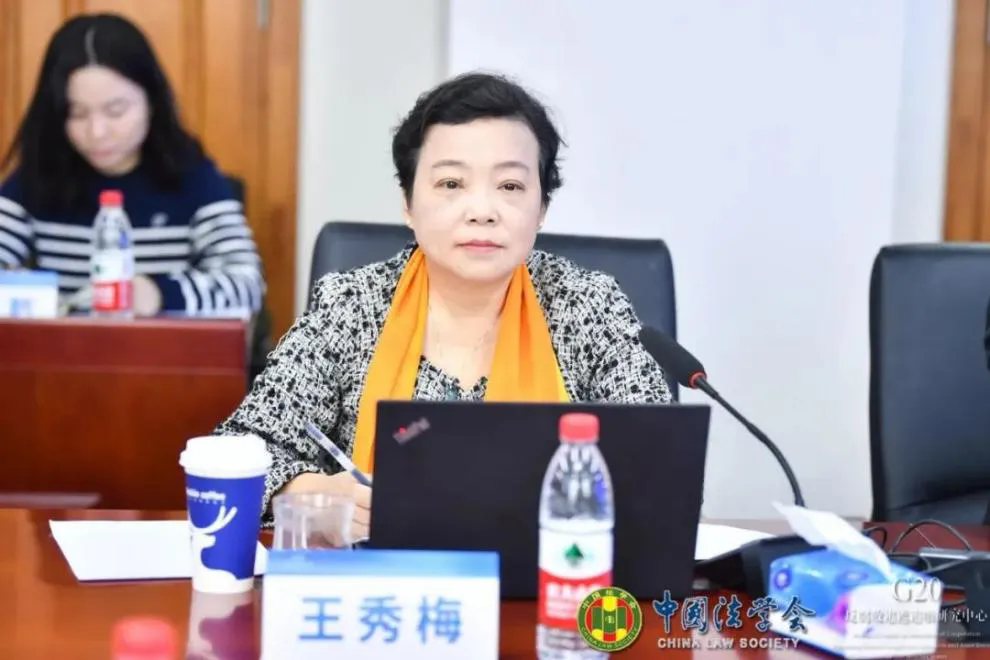
Chaired by Prof. Wang Xiumei
In this seminar, more than 40 experts, scholars and practitioners in the field of criminal law gathered together for an in-depth discussion and study of the Amendment (XII) to the Criminal Law. The opening ceremony was hosted by Prof. Wang Xiumei, Professor of Law School of Beijing Normal University, Vice Dean of Criminal Law School, and Director of G20 Anti-Corruption Fleeing and Recovery Research Center. On behalf of the conference organizer, Prof. Wang firstly expressed his sincere thanks to the invited guests, and believed that this conference was held at the right time before the Amendment (XII) to the Criminal Law came into force on March 1 this year, aiming to gather the strength of all walks of life to discuss and exchange ideas, so as to deepen the digestion and understanding of the content of the Amendment (XII) to the Criminal Law. Afterwards, Mr. Jiang Wei, Vice President of the China Law Society, Mr. Hu Yunteng, President of the Case Law Research Society of the China Law Society, and Mr. Yuan Qiguo, Vice President and Secretary General of the China Association of Integrity Legal System Research, delivered opening speeches.
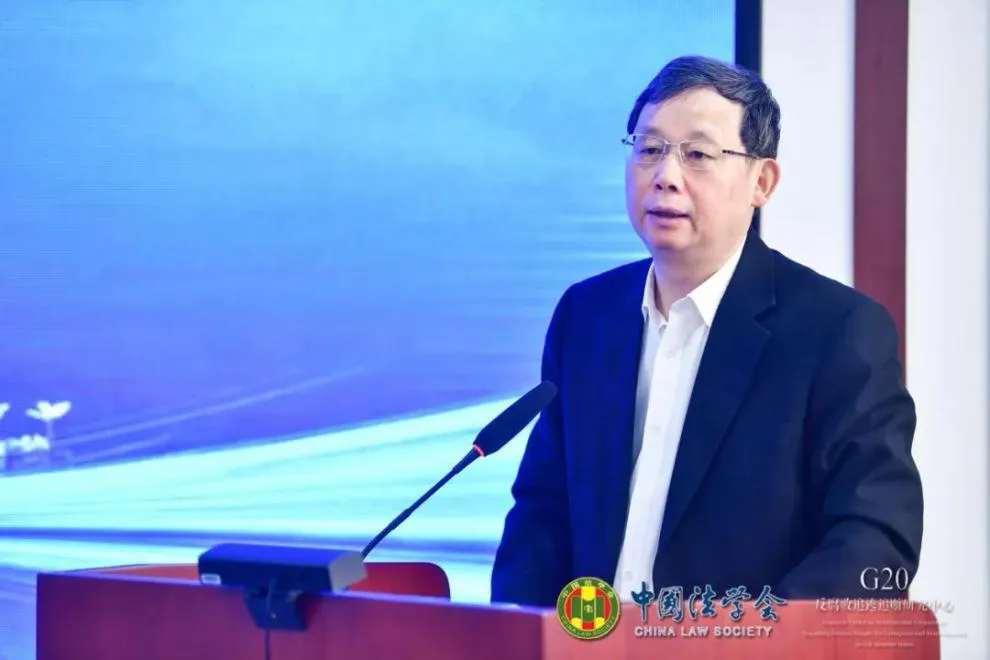
Speech by Jiang Wei, Vice President of China Law Society
In his speech, Jiang Wei, Vice President of China Law Society, fully affirmed the significance of this seminar in promoting all sectors of the society to strengthen their understanding and knowledge of the Amendment (XII) to the Criminal Law, and boosting the related research to further heat up. President Jiang Wei emphasized that all walks of life should see the legislative evolution of the country behind the successive amendments to continuously improve the fight against and governance of corruption crimes, and deeply understand the relationship between active bribery and passive bribery, which is two sides of the same coin: active bribery is not prohibited, but passive bribery is more than that. Carefully understand the revision of the Criminal Law involves four important aspects of the crime of active bribery: First, the Party Central Committee to determine the key types of active bribery investigation from the policy orientation into the law, clearly listed as the legal situation of heavier penalties; second is to adjust the legal penalty structure of the crime of active bribery, 5 years of fixed-term imprisonment of the statutory node adjusted to 3 years of fixed-term imprisonment, and the crime of passive bribery to harmonize with the legal penalty structure; third is to increase the unit of the crime of active bribery penalties; and fourth, making comprehensive adjustments to the penalties for other active bribery offenses. It is necessary to fully implement the governance policy of curbing active bribery and maintain the high-pressure situation of punishing the crime of passive bribery, while at the same time increasing the punishment for active bribery. Properly grasp the criminal policy of investigating and dealing with active bribery, increase the recovery and correction of undue benefits obtained from active bribery, and make sustained efforts to push deeper and deeper in the output of the soil and conditions under which corruption arises, so as to create and promote a good culture of respecting honesty and integrity and resisting corruption.

Speech by Hu Yunteng, President of Case Study Society of China Law Society
Hu Yunteng, President of the Case Study Association of the China Law Society, said in his speech that all sectors should more comprehensively recognize the significance of this amendment to the Criminal Law, focus on understanding the social and policy significance behind it, and appreciate the “two major concerns” contained in the amendment regarding the protection of the development of private enterprises and the punishment of corruption crimes. In terms of the first concern, it can be interpreted from four aspects: firstly, it reflects the equal protection of private enterprises and state-owned enterprises by the state; secondly, it reflects the intervention of the criminal law in the adjustment of the internal governance of private enterprises and the management of private enterprises' personnel; thirdly, it puts forward higher requirements for the management and governance of private enterprises; and fourthly, it creates conditions for the promotion of the high-quality development of private enterprises, and for the further exploration of the compliance system of enterprises with Chinese characteristics. Fourth, it creates conditions for promoting the high-quality development of private enterprises and further exploring a corporate compliance system with Chinese characteristics. In terms of the second concern, it is necessary for us to strengthen the research on the crimes of illegal profit-making for relatives and friends and illegal operation of similar businesses, and to do a good job in the doctrinal interpretation of some relatively ambiguous provisions. In the end, President Hu Yunteng positively recognized the role of G20 Anti-Corruption Fugitive Offenders Research Center as a think-tank in solving the major real-life rule of law issues of the country and hoped that the Center would take this seminar as an opportunity to produce more results to serve the construction of the rule of law in the country.
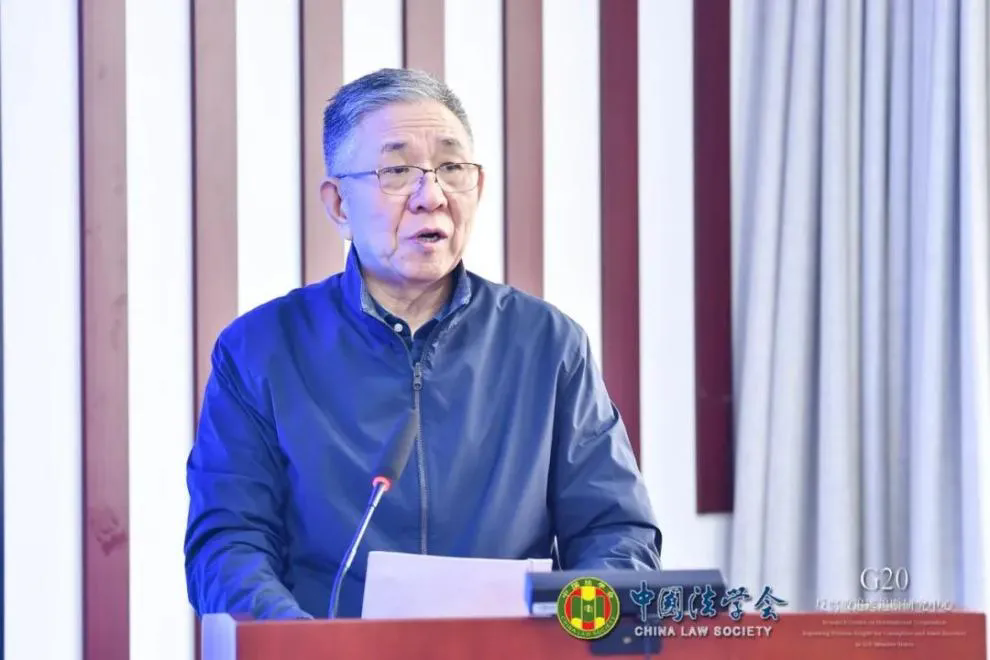
Speech by Yuan Qiguo, Vice President and Secretary General of China Association for the Study of Integrity and the Rule of Law.
On behalf of the organizers, Yuan Qiguo, Vice President and Secretary General of China Association for the Study of the Integrity Law, welcomed the guests in the seminar and pointed out that we should seize the two main lines of Amendment (XII) to the Criminal Law to increase the punishment for bribery crimes and increase the punishment for crimes related to corruption of insiders in private enterprises, further develop anti-corruption legal system and the study of the Integrity Law and grasp the new situation and new requirements of the national anti-corruption fight, and promote the anti-corruption work in China. In order to further develop the anti-corruption legal work and research on integrity legal system, accurately grasp the new situation of the national anti-corruption struggle and new requirements, promote the anti-corruption work of China to a new level and escort the high-quality development of private enterprises. In the future, China Association of Integrity Law will further strengthen cooperation with G20 Anti-Corruption Fleeing and Recovery Research Center to build an exchange platform for more experts and scholars to serve the overall situation of the Party and the country.
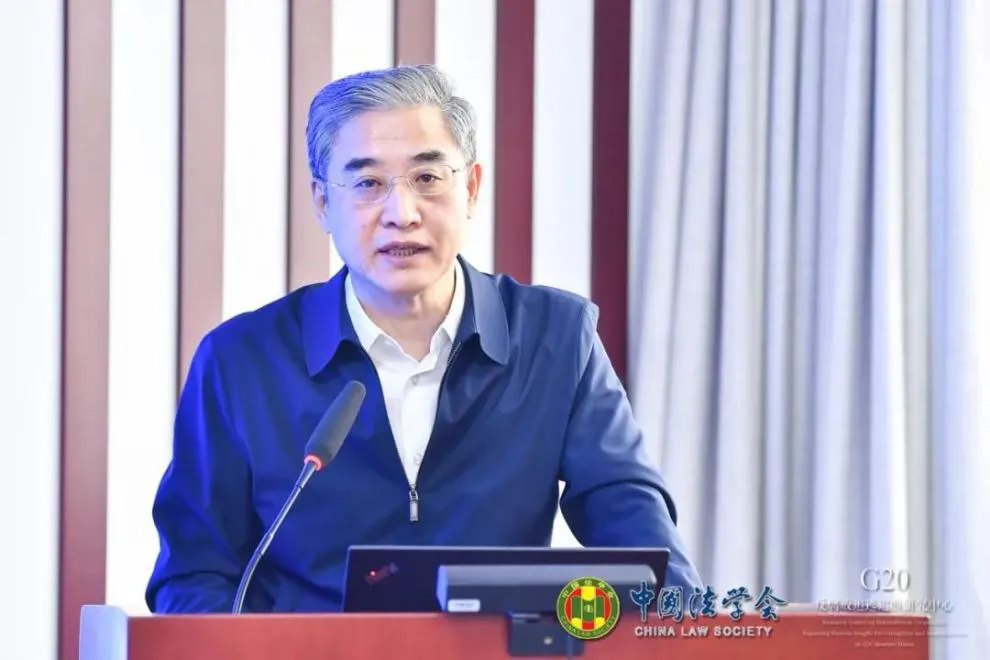
Speech by Mr. Wang Xiaodong, Vice President of China Institute of Criminal Procedure Law
Wang Xiaodong, vice president of the Chinese Society of Criminal Procedure Law, then delivered a keynote speech on the theme of “Deep Integration of Equal Protection for All Types of Economic Subjects and the Fight Against Corruption - Interpretation of the Criminal Law Amendments (XII) as a Perspective”, arguing that one of the major features of this amendment lies in the increased focus on the organic integration of equal protection of property and the fight against corruption. Legislative improvement by way of amendment can better safeguard the stability and applicability of the criminal law, implement into the law the important instructions, the spirit of instructions and the decision-making and deployment of the Party Central Committee which attaches great importance to the equal protection of property under the law and requires enterprises to operate in compliance with the law, strengthen the protection of property rights and entrepreneurs' rights and interests of the private enterprises, and promote the modernization of the Chinese-style modernization with the modernization of the work of the political and legal system. At the same time, under the situation that the country's anti-corruption struggle has made remarkable achievements, statistics show that the crackdown on active bribery has been relatively weak for some time in the past, and the insistence on investigating active and passive bribery together is a necessity and embodiment of the need for China's anti-corruption struggle to develop in a deeper and deeper manner. The amendment involving active bribery is not a simple increase in punishment, but a further refinement of the behavior of the subject of active bribery, as well as the unity of sentencing for all types of subjects. In the future application, we should more accurately implement the protection of rights, grasp the boundaries between crime and non-crime, pay attention to preventing the undue proliferation of public power, take into account the actual situation of different enterprises, and reasonably delineate the boundaries between civil and commercial disputes and economic crimes and crimes of duty, so as to provide good legal protection for the development of private enterprises in the whole process.
This seminar is divided into three modules. The third seminar module was chaired by Associate Professor Shang Haowen, researcher of G20 Anti-Corruption Fleeing and Recovery Research Center and Beijing Normal University School of Law and Institute of Criminal Sciences. Lawyer Yali Liang, Senior Partner of King&Capital Law Firm and Director of King&Capital Criminal Defense Research Center, made a speech entitled “The Connection and Reflection on the Judicial Application of the <Criminal Law Amendment (XII) > and the Reform of Compliance of Companies Involved in Cases”.
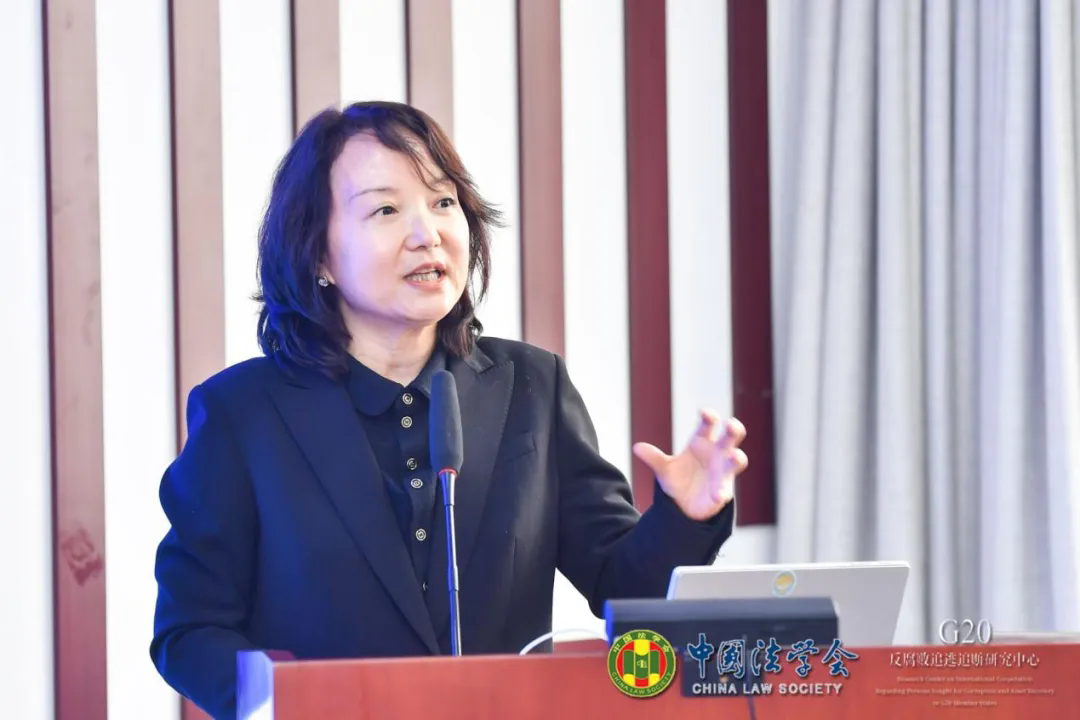
Mr. Liang Yali made a speech on the topic
In the special speech, lawyer Liang Yali summarized the characteristics of private enterprises and private entrepreneurs involved in criminal cases since the 18th National Congress of the CPC by introducing the three private entrepreneurs involved in criminal cases handled by him in the form of case interpretation. Liang Yali lawyer believes that the personal freedom of private entrepreneurs need to be valued, the legal property of private enterprises need equal protection, need to pay attention to and solve the phenomenon of criminal means of intervention in economic disputes in criminal justice practice. Ms. Liang combed through the legislation related to the rule of law business environment and the protection of private enterprises, and interpreted the legislative trend of the Amendment (XII) to the Criminal Law from the perspective of policy evolution.
As a senior criminal defense lawyer, Ms. Liang also put forward her thoughts on avoiding the alienation of the Amendment (XII) to the Criminal Law as a tool for the struggle for the rights of shareholders within the company from the level of specific criminal defense practice, further emphasized the importance of the supervision of filing a case and the review of the necessity of detention, and expressed her views on how the legislation of “equal protection” in Amendment (XII) to the Criminal Law can be better applied to the protection of private enterprises and how the legislation of “equal protection” can be improved. “of the Criminal Law Amendment (XII)” on how the legislation can better connect with the private economy protection policy to explore.
Mr. Liang Yali also predicted the compliance needs of enterprises in the context of the Criminal Law Amendment (XII), and proposed that lawyers should play an active role in promoting the development of private economy, suggesting that the “Compliance without Prosecution” should be used to protect enterprises before, during and after the incident.
The closing ceremony of the conference was hosted by Prof. Zhang Lei, Deputy Director of G20 Anti-Corruption Fleeing and Recovery Research Center and Professor of Beijing Normal University School of Law and Criminal Sciences. Prof. Zhang Lei briefly summarized the speeches of the three modules and further proposed that with the continuous deepening of the anti-corruption struggle, the meaning of “investigating together” has been enriched, which is multi-subject and multi-dimensional, including investigating active and passive bribery together as we are familiar with, and should also include investigating state-owned enterprises and private enterprises together as embodied in the amendment, investigating both inside and outside of the country as in transnational commercial bribery, and investigating corruption and bribery cases together as well as investigating the corruption and bribery cases together. It should also include the investigation of state-owned enterprises and private enterprises together, the investigation of transnational commercial bribery within and outside the country, and the investigation of corruption and bribery and money laundering together in the handling of corruption and bribery cases.
Prof. Wang Xiumei, Director of the G20 Anti-Corruption Fugitive Evasion and Retrieval Research Center, said in his concluding remarks that although the preparation time for this meeting was relatively short, and the duration of the meeting was only one morning, with the participation of all the guests from the theoretical and practical circles, we jointly organized a high-quality seminar. Amendment (XII) of the Criminal Law is relatively short, but the impact on the future of criminal justice will be far-reaching and long-lasting, and the angles of research are also diverse, reflecting the research thinking of the intersection of the relevant research disciplines, civil law, corporate law, and other pre-existing law, the intersection of domestic and international law are all contained therein. Due to time constraints, only three topics were set for the seminar, and it is hoped that the guests will take this opportunity to continue to explore the multi-dimensional value of Amendment (XII) to the Criminal Law, continue the seminar, and further set off a research fervor on the understanding and application of Amendment (XII) to the Criminal Law.
The seminar is actively concerned about the evolution of major national legislation, focusing on the theme of “Understanding and Application of Criminal Law Amendments (XII)”, and setting up related topics around the two main lines of equal protection for private enterprises and punishment of corruption crimes, and carrying out sufficient exchanges and discussions. In the collision of ideas, the guests enriched their research perspectives and further deepened their understanding of the amendment, and the G20 Anti-Corruption Fleeing and Recovery Research Center will take this seminar as an opportunity to promote the publication of the papers as soon as possible, so as to promote all sectors of society to pay more attention to the Criminal Law Amendments (XII), comprehend the content and ideas, develop its functional value, and strive to move forward and provide more opportunities for the modernization of China. Continue to provide more intellectual support for Chinese-




